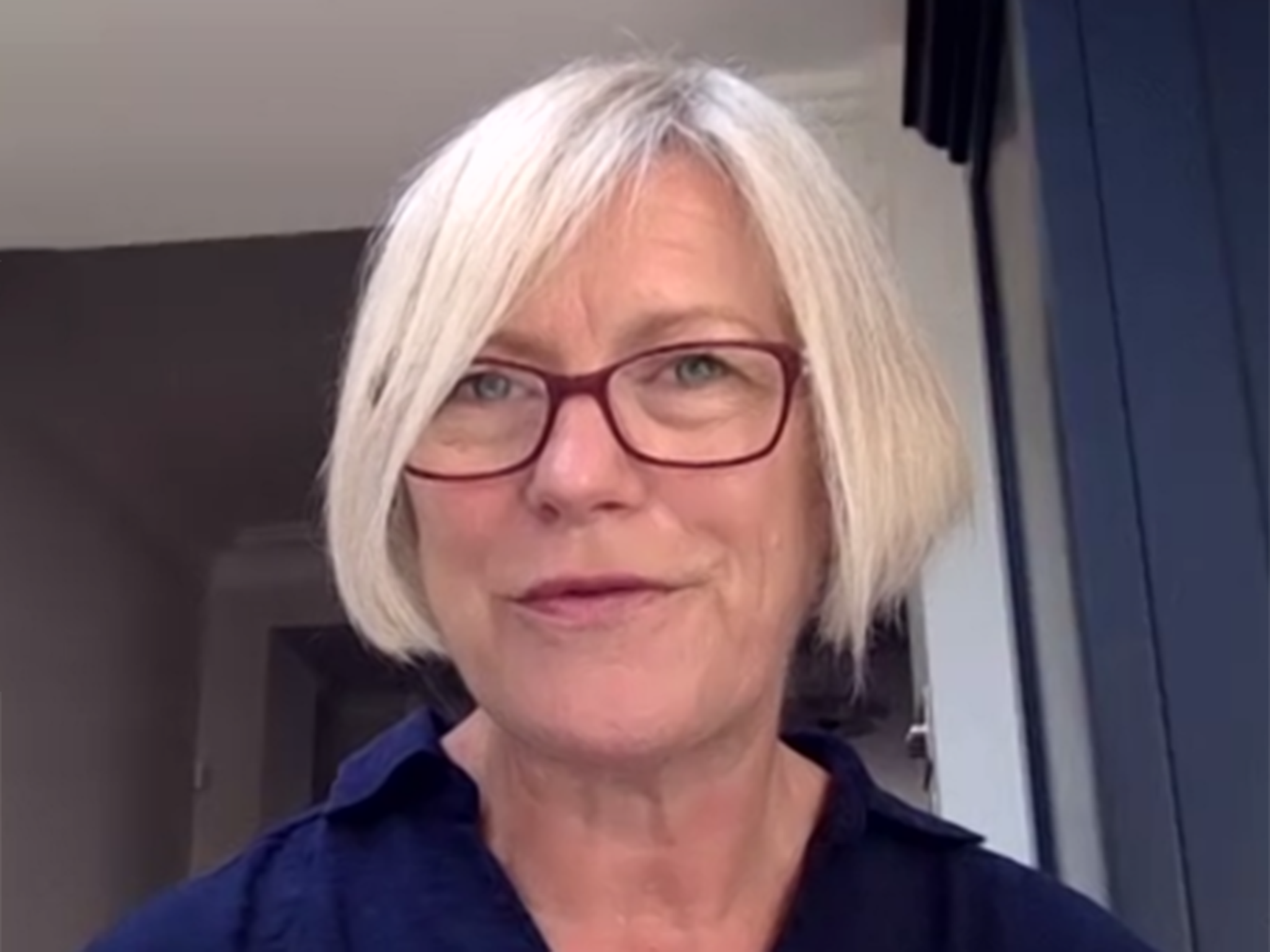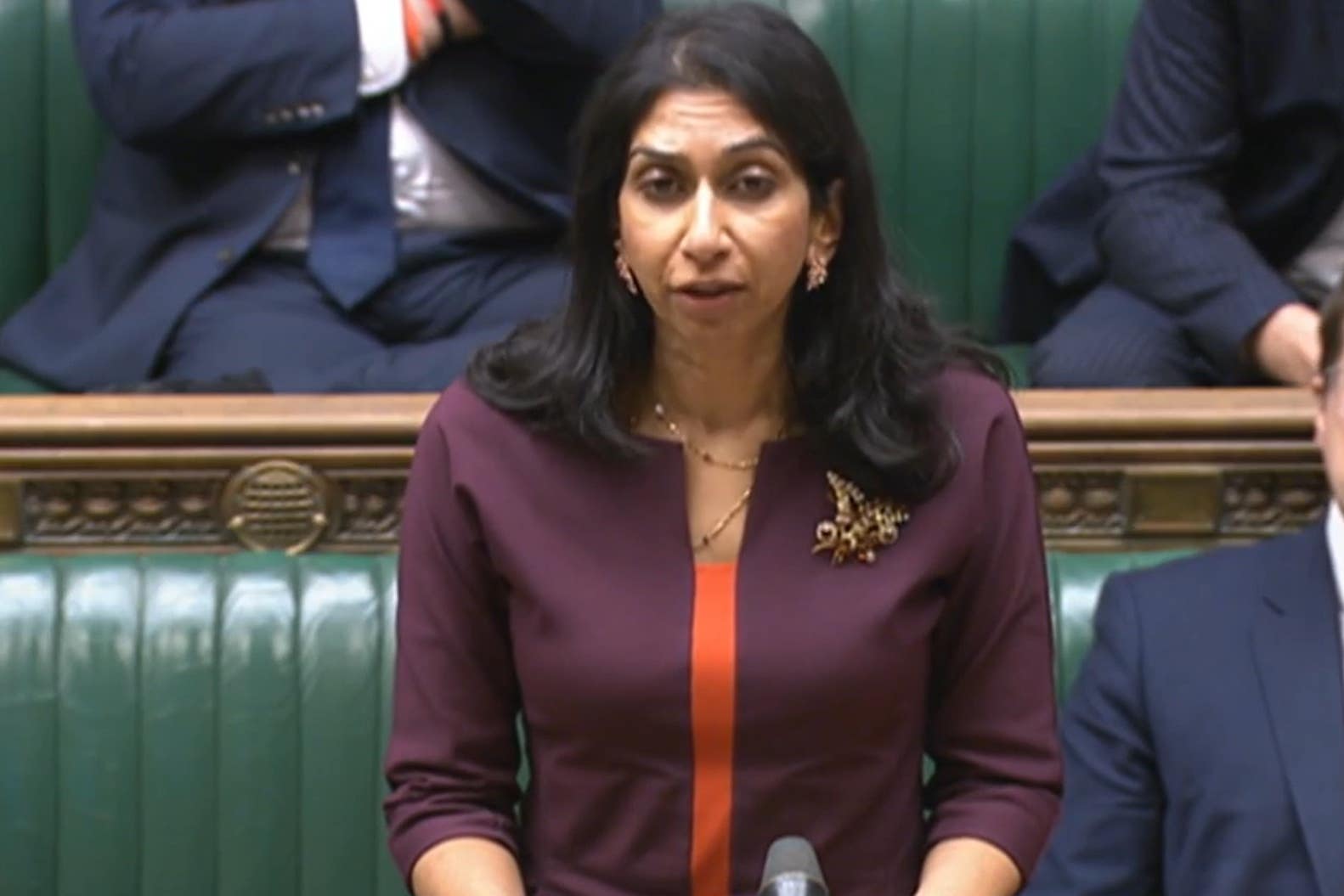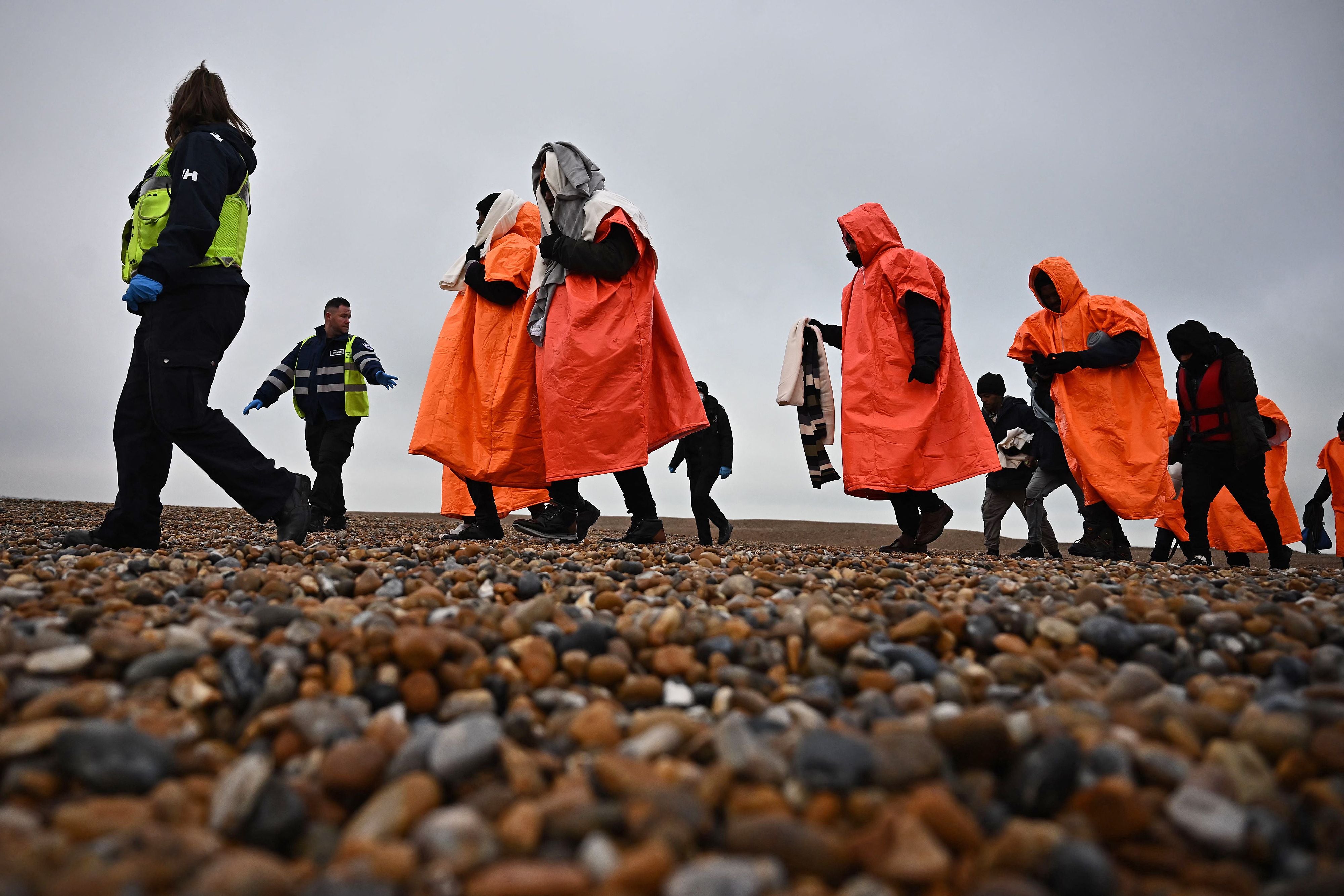Government accused of ‘attacking’ modern slavery protections while failing to appoint watchdog
Exclusive: Former anti-slavery watchdog says gap in scrutiny has become ‘extremely urgent’ as new laws planned
Your support helps us to tell the story
From reproductive rights to climate change to Big Tech, The Independent is on the ground when the story is developing. Whether it's investigating the financials of Elon Musk's pro-Trump PAC or producing our latest documentary, 'The A Word', which shines a light on the American women fighting for reproductive rights, we know how important it is to parse out the facts from the messaging.
At such a critical moment in US history, we need reporters on the ground. Your donation allows us to keep sending journalists to speak to both sides of the story.
The Independent is trusted by Americans across the entire political spectrum. And unlike many other quality news outlets, we choose not to lock Americans out of our reporting and analysis with paywalls. We believe quality journalism should be available to everyone, paid for by those who can afford it.
Your support makes all the difference.Ministers have been accused of “attacking” modern slavery protections, while violating the law by failing to appoint a watchdog charged with defending them.
There has been no Independent Anti-Slavery Commissioner (IASC) in post for eight months, meaning there can be no official scrutiny of major changes planned by the government that will make it harder for potential victims to gain support.
Dame Sara Thornton, who held the post until her three-year term ended in April, told The Independent the vacancy means the watchdog has “no power and no voice”.
“They are extremely limited in what they can do,” she added. “We lack that independent objective voice which is so necessary in the heat of political debate.
“A commissioner should be giving evidence to parliament, speaking to officials, speaking to ministers and keeping their announcements, their policy and prospective bills under scrutiny.”
A spokesperson for the remaining IASC office said that without a commissioner, staff engaging with the government “have no remit to provide views or take on or contribute to new work”.
It comes after Rishi Sunak told parliament that the government would “significantly raise the threshold someone must meet to be considered a modern slave” and require “objective evidence” before they can be helped through its National Referral Mechanism policy.
The move followed the home secretary’s repeated claims that modern slavery laws were being “gamed” by small boat migrants, despite the Office for Statistics Regulation saying available figures do not support the assertion.

United Nations experts have said the new policies could stop victims from being identified and protected, while letting traffickers go free.
They accused the government of “attacking the credibility of victims of trafficking and contemporary forms of slavery” with “unsubstantiated claims” and policies.
The special rapporteurs for trafficking, slavery and migrants’ rights said: “There is little evidence to support these claims [of systemic abuse] and generalising them is dangerous and regressive.
“This has a chilling effect on those willing to come forward as victims and those willing to provide legal representation, impeding efforts to identify and protect victims and persons at risk of trafficking, and hold perpetrators accountable.”
The UN experts said the government must “immediately” appoint a new commissioner, and that the role was required under the 2015 Modern Slavery Act.
Dame Sara, a former senior police officer who headed the National Police Chiefs’ Council, said the situation had “become extremely urgent” since the government announced new modern slavery laws and policies.
The advert for a new commissioner was published on the government’s public appointments website a year ago, with the page saying that applications closed in January 2021 and final interviews took place in April.
No announcement has been made and in response to several parliamentary questions demanding explanations for the delay, ministers have repeated that “a decision on the appointment is under consideration” without giving any further information.
Dame Sara was told that a shortlist of several candidates had been drawn up earlier this year but received no further update. She said: “Officially the Home Office say they’re still in the process but it does seem to be taking an extraordinarily long time.”

The role was created by the Conservative government in 2015 and set down in the Modern Slavery Act, and Dame Sara said the failure to appoint her successor “contravenes the will of parliament”.
The law states that the home secretary “must appoint a person as the Independent Anti-Slavery Commissioner” to monitor the prevention, detection, investigation and prosecution of slavery and human trafficking offences, while making official recommendations to the government and public authorities.
James Fookes, UK and Europe advocacy manager at Anti-Slavery International, warned that without it there was no independent body providing oversight on “new policies and legislation affecting victims and survivors at a time when it is critically needed”.
“The government continues to propose initiatives that would reduce access to modern slavery support systems and use harmful rhetoric against potential victims of modern slavery,” he told The Independent.
“Without a commissioner in post, a vital piece of scrutiny of government actions, inaction and language remains dormant meanwhile modern slavery victims are being neglected.”
Maya Esslemont, director of the After Exploitation charity, said the vacancy was damaging public information around modern slavery, adding: “It is not acceptable for ministers to announce policies which would further restrict support for victims, at a time when a key source of accountability is absent from the debate and unable to advocate for those affected.”

Because there is no commissioner in post, Dame Sara was called to give evidence on small boat crossings to parliament’s Home Affairs Committee in December.
She questioned Suella Braverman’s allegations of widespread abuse of modern slavery protections, saying that being recognised as a victim did not give people the right to remain in the UK and that the process was separate to asylum claims.
Dame Sara told parliament’s Home Affairs Committee that potential victims had to be referred to the Home Office by officials, rather than making baseless “claims” themselves, and numbers had risen because of a government strategy training police and immigration officials how to identify exploitation.
“It is my view that the factor of modern slavery protections has been exaggerated in this whole issue about small boat crossings,” she added in December.
“I do not think the evidence supports the rhetoric, and the rhetoric is severely undermining Modern Slavery Act protections.”
A Home Office spokesperson said the government remained committed to stamping out modern slavery.
A spokesperson said: “The UK has led the world in protecting victims of modern slavery and we will continue to identify and support those who have suffered intolerable abuse at the hands of criminals and traffickers.
“The home secretary recognises the importance of the role of Independent Anti-Slavery Commissioner, and has committed to running a new open competition to recruit for this role.”
Update: This article has been amended after the Home Office contacted The Independent, following publication, to update their statement from the one originally given in response to our questions. No advert has yet been placed online for the new competition.




Join our commenting forum
Join thought-provoking conversations, follow other Independent readers and see their replies
Comments